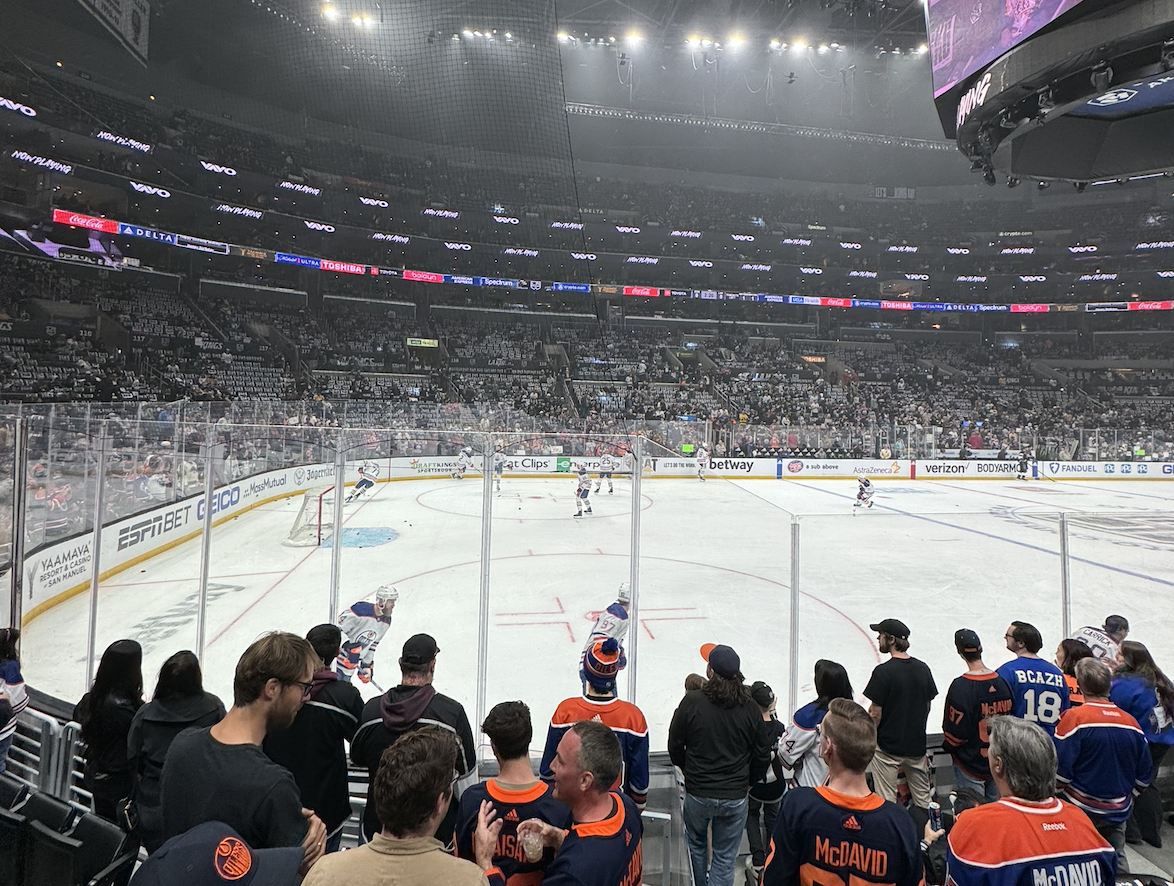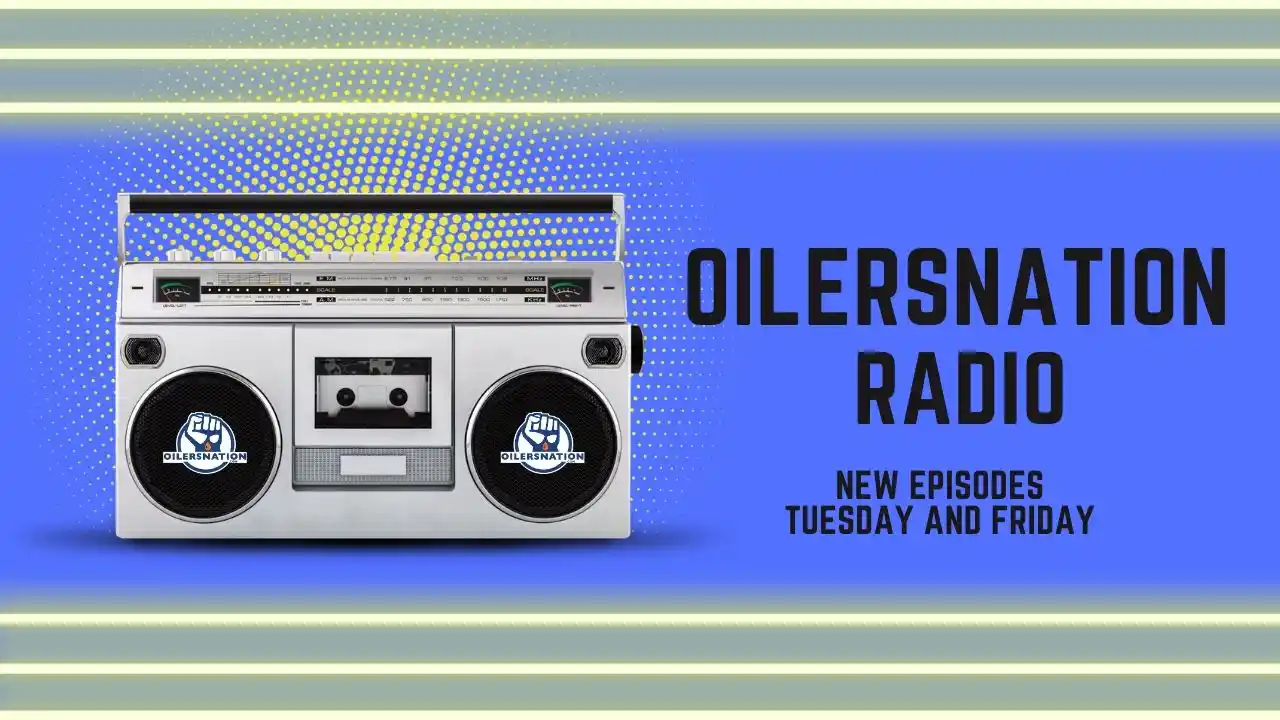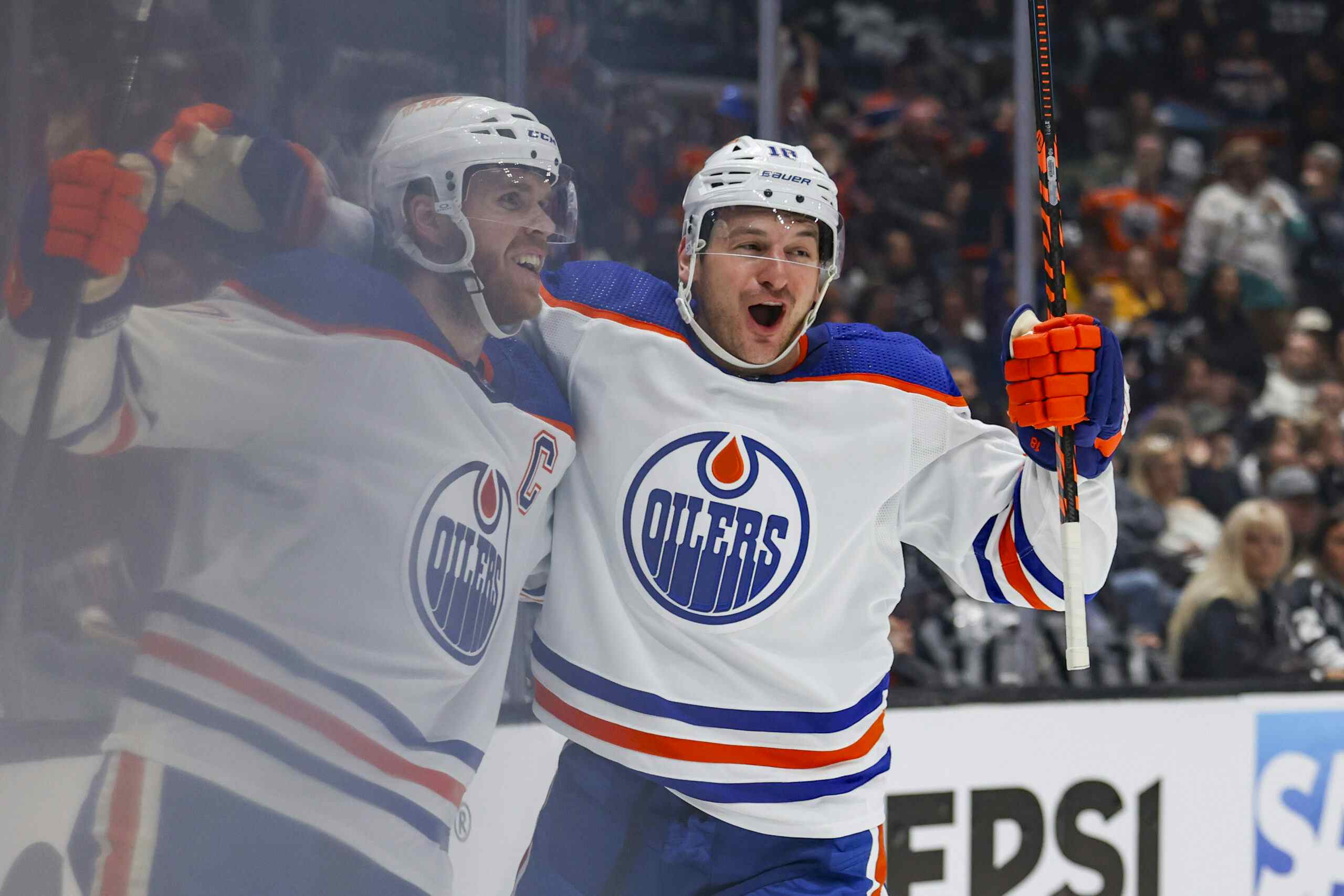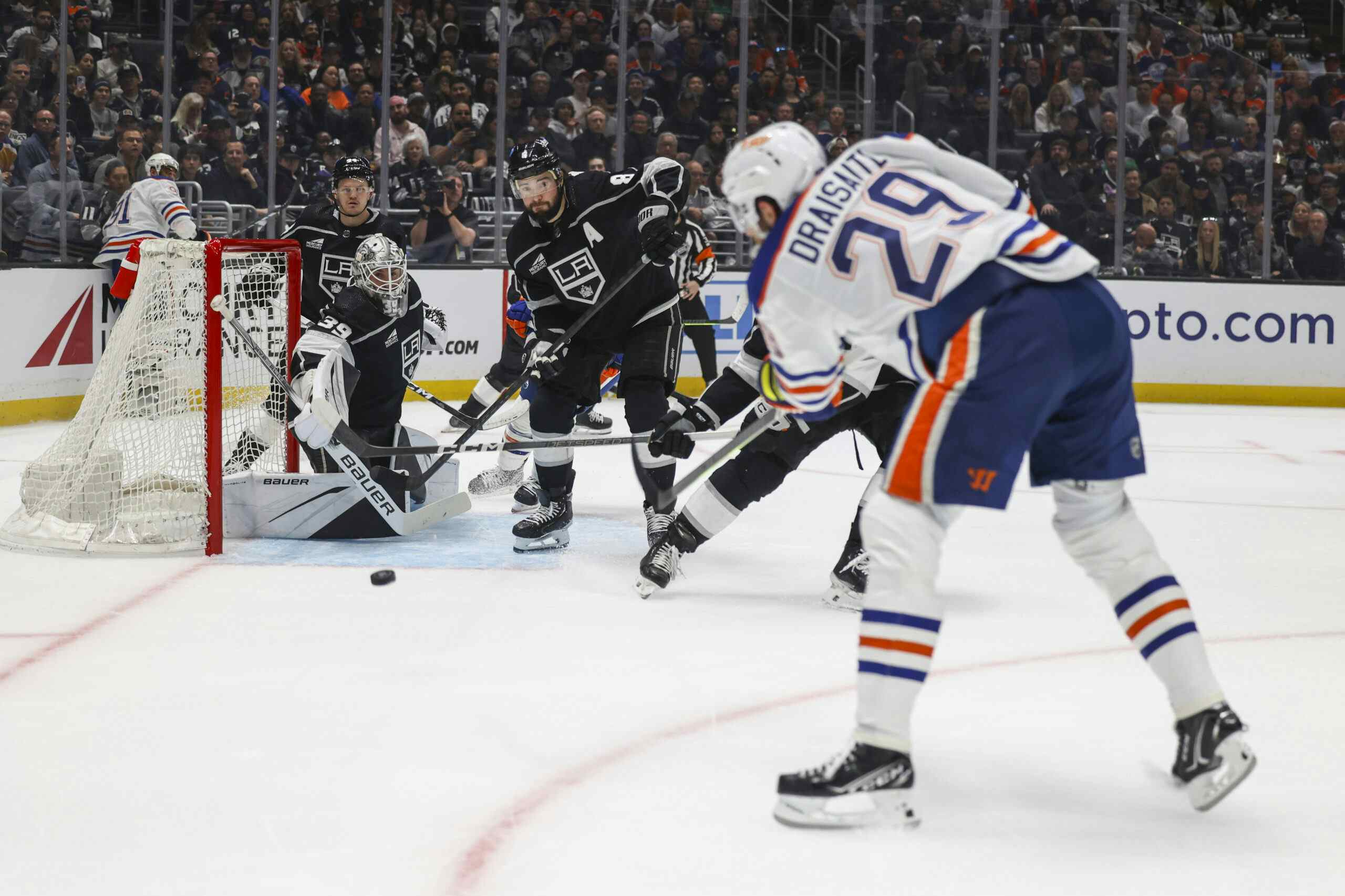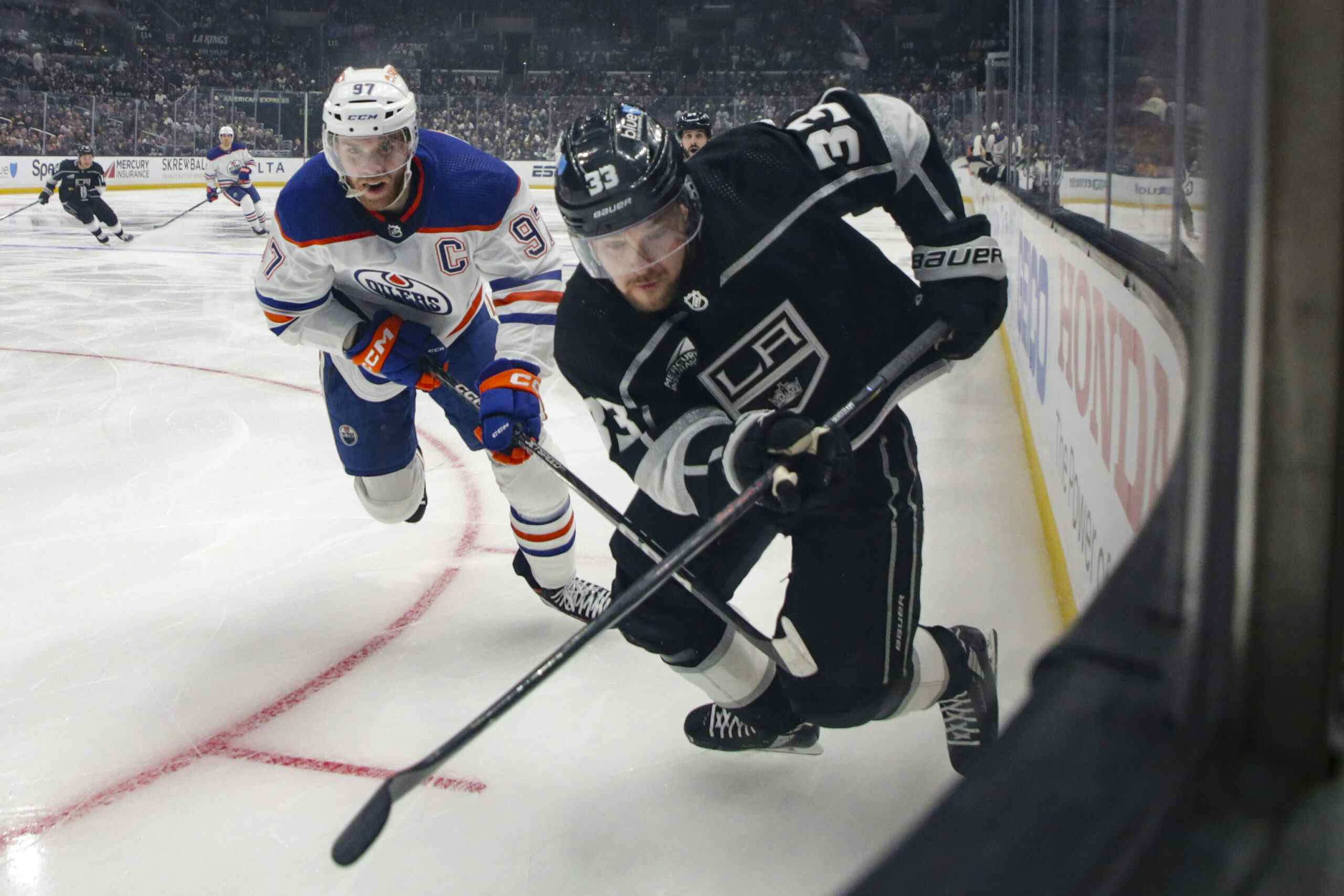The Stage For The Next Labour War?
In the wake of the firing of Paul Kelly by the NHLPA executive board, Michael Russo of the Star Tribune interviewed the player representative for the Minnesota Wild to find out why. While Nick Schultz wasn’t overly forthcoming about the reasons for Kelly’s dismissal, he did identify the issue which will likely be the key battleground between the owners and the players when the current CBA expires.
Russo’s excellent (and rather lengthy) interview with Schultz can be found here – for anyone interested in this subject, the entire interview is a good read -and I’m only going to excerpt one question from it:
Russo: How much are you guys worried that the league will go after guaranteed contracts?Schultz: Bigtime. You see that in other sports where they can just get rid of you. It’s something that would be pretty hard to give up. There are different things that both sides will have to give a little bit to get something done, maybe working on the buyout structure or things like that. It’ll take some time, but it’ll eventually get sorted out.
The second item Schultz mentions is the key one: guaranteed contracts.
For a lot of teams, the end of guaranteed contracts would solve a lot of problems. For example, the Rangers horrible signing of Wade Redden (6.5MM per year until 2014) could disappear overnight, freeing them up to lob ridiculous money at the next shiny object to catch Glen Sather’s gaze.
It’s a similar story for the Canadian teams. Sick of paying Dustin Penner better than 4MM per season? Feel that Robert Nilsson and Steve Staios are almost 5MM in combined dead-weight? Situations like last season, where the Flames had to dress less than a full roster, wouldn’t need to happen either – because players like Warrener and Primeau could just be disappeared when the need arose.
From a player’s perspective, it’s a fairly hellish idea – suddenly, all of those free agents who have sought the security of a long-term contract would lose that security. No contract would be safe.
I tend to side with the players on this particular issue – for a number of reasons. First, I think a contract is a contract is a contract; I’ve always been bitter about players like Alexei Yashin, who have held out hoping to make more money. That principle works both ways. Second, I think that star players would push for major signing bonuses to ensure they got their money – meaning that clubs with extra dough to throw around (read: Glen Sather and the New York Rangers) would have a more pronounced advantage. A club like Columbus might be able to offer Rick Nash a long-term contract for good money each season, but if they suddenly need to front-load that contract via signing bonuses it becomes a much more difficult proposition. Third, I think bad managers should have to wear the price of their mistakes. Many clubs – including the Oilers – have thrown money around in an irresponsible manner, and the only way to discourage such lavish spending is by ensuring these teams have to live with their mistakes.
And it is essential that there be repercussions for lavish spending. People like Tony Gallagher talk about how it puts their teams (in his case, the Canucks) at a competitive disadvantage, but it’s worth remembering that only five years ago teams like Vancouver, Edmonton and Calgary desperately needed the salary cap. Good hockey markets like Columbus and Minnesota need spending to be restrained – and there will always be good hockey markets with either poor owners or high taxes or some other restriction that means they can’t compete with the New York’s and Toronto’s of the league. Such markets need protecting.
Regardless of my feelings though, many of the most powerful teams in the league will be pushing for an end to guaranteed contracts. Certainly a man like Lou Lamoriello in New Jersey – a man who sent Alex Mogilny to the minors and gave San Jose a first round pick to take Vladimir Malakhov off of his hands – would be in favour of such a measure. One would imagine that the big markets – Philadelphia, Toronto, Boston, etc. – would be of a similar mindset.
Hopefully what will happen is that the players and owners will find a middle ground – one that sees the buyout system restructured so that it only costs 50% of a player’s salary to buy him out, rather than the current 66%, or something similar – rather than each side sticking to the extremes. However, given the track record of both the league and the NHLPA, that’s hardly assured – especially since both have shown a willingness to burn a season of hockey to get what they want.
Kelly Spying on Players?
Charges emerged yesterday that may explain some of the reason for the NHLPA’s dismissal of Paul Kelly. According to Tim Wharnsby at the Globe & Mail:
Some details began to leak out yesterday, including charges that Kelly peeked at a confidential transcript from a private session at the NHLPA summer meetings in Las Vegas two months ago…When an executive board member was contacted yesterday to confirm the private session was part of the reason for Kelly’s dismissal, the phone line went silent. He then said, “The players have agreed not to say anything.” The player was given a chance to refute the story and did not deny the allegations.
The main purpose of the meeting which Kelly is supposed to have spied on was to discuss Kelly’s leadership. Additionally, the meeting led to the executive board awarding Ian Penny a five-year contract extension – without Kelly’s input.
It seems to me though that this particular charge is largely irrelevant – even if correct. Obviously, there were already different concerns about Kelly’s leadership – since that was the main topic of the Las Vegas meeting. Since Kelly could not have looked through the minutes of that confidential meeting until after it occurred, it stands to reason that his supposed snooping could not have been the driving reason behind his dismissal.
Rather, it seems clear that a power struggle inside the NHLPA office between Kelly and Ian Penny led to Kelly’s dismissal – a theory that gained some more evidence today.
Healy Resigns
Glenn Healy, widely seen as Paul Kelly’s lieutenant at the NHLPA, has resigned from his position as Director of Player Affairs. Healy’s the third Kelly loyalist to leave the NHLPA – Pat Flatley resigned within minutes of Kelly’s termination and accounting consultant Bob Lindquist quit yesterday.
Essentially, this means that every member of Paul Kelly’s support group within the NHLPA front office has now left the organization.
Recent articles from Jonathan Willis

